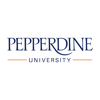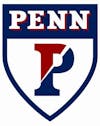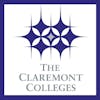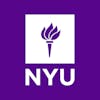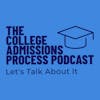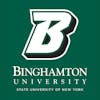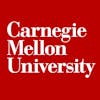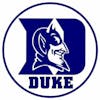Pepperdine University
John:
Welcome to the CAPP, the College Admissions Process podcast. I am your host, John Durante, and it gives me great pleasure to introduce you today, Gianna Mack, who's an admissions counselor at Pepperdine University in beautiful Malibu, California. Gianna, thank you so much for being here today. How are you?
Gianna Mack:
I'm doing well, thank you so much, John. It's a pleasure to be here and I could not pass up this opportunity even if I was busy on this fine day.
John:
Well, that's terrific. I've been getting so many requests about schools in California, so it really is an honor and a pleasure to have you on the show today. So, let me ask you, what is it about Pepperdine University that makes it so appealing for so many students to want to apply and ultimately attend?
Gianna Mack:
Oh, great question. I mean, there's so many things that I can list and go on about Pepperdine, but I first wanna hone in on what you've already mentioned and that is our beautiful location here in Malibu, California. I mean, the breathtaking views, waking up each morning with the sun setting, it is just... wonderful and honestly a blessing and so that is one of the amazing things. I mean our students love to go surfing, they love to go sit on the sand and really just soak up the sun and so that's one of the wonderful aspects of Pepperdine that our students really enjoy. But I also want to touch on our study abroad programs as those are one of the key elements that students really enjoy here at Pepperdine. And we have a total of six programs that are throughout the academic year. The locations, I mean, they go on from Washington, D.C., to London, to Heidelberg, Luzanne. I mean, we have so many different locations that our students really love and enjoy. And the amazing thing is that they are in Pepperdine-owned buildings, and students are taught by Pepperdine-hired faculty. And so that really allows our students to engage with the Pepperdine experience just in a whole. another part of the world. And with that being said, I mean, about 80% of our students study abroad here at Pepperdine. And so we are within the top five universities in the nation when it comes to highest participation. Now, lastly, I do wanna touch on our wonderful community here. It is truly, truly amazing. I mean... from the tight-knit small class sizes to the way that our faculty make sure to engage with their students and create those personable connections. About 35% of our faculty members live here on the Malibu campus. And that is not only for the beautiful view, but really to make sure that they are creating those connections with students so that they feel comfortable within the classroom environment. And so those are just a few of the wonderful. aspects about Pepperdine that I think sets us apart and then I hope students who are interested see as well.
John:
Well, that's a terrific intro. You're located in the paradise of Malibu, which offers so many opportunities for students both on and off your campus. I'm glad that you mentioned the study abroad program. I didn't know that 80% of your students participate. Obviously you have those small class sizes and the connections between student and faculty are second to none. And 35% of the faculty actually live on campus, which is another outstanding statistic. So Gianna, let me ask you, because a lot of students and even the parents wanna know, what can you tell us about life on campus outside of the classroom? In other words, on the weekend. Is it a commuter school where everyone is running home or are the students there and there's a lot of fun life and things going on outside of the classroom? What could you tell us, Gianna?
Gianna Mack:
Yeah, great question. So, I mean, first and foremost on our campus, there's so many amazing things for students to engage with. We have our different student-led groups. We have over 100 clubs and organizations that host so many events, meetings, tabling, from our identity-based groups to our fraternities and sororities, even our service and religious groups here on campus. But I also want to touch on just community-wide events that we have here on campus. We have our student-led coffee house events here. We have our live music, poetry that students engage with. They're able to really perform and show out there. And then we also have our sports teams. And so with that, we have 17 men's and women's NCAA Division I athletes. teams here. We also have our club and intramural teams and so students really are able to get in touch with not only in sports but also when it comes to that student experience and then of course when it comes to those clubs and organizations we also have our major specific groups and so if you want to grow professionally academically there are those spaces as well for students outside of the classroom there. Now in terms of campus life around art university here. We have, as I said, an amazing beach not too far, but we also are about 30 minutes to an hour with traffic. It depends from Los Angeles, California. And so the city life is there. I'm born and raised in Los Angeles. I love my city and we have so many great things. I mean, from art exhibits to parks and just so much in terms of restaurants, shopping, great things for students to enjoy within the city as well. And then we also have the mountains not too far. So students can go horseback riding, hiking, whatever that looks like. I really like to say we are right where we need to be because we're right by the beach, but also not too far from the city. And then we have the mountains right behind us. So just a bit on our environment, but also what we have going on here on campus.
John:
Well, that is awesome. Over a hundred clubs and organizations, fraternities, sororities, and even religious groups. Really sounds like there's something for everyone with your D1 athletics. And of course you have your club and intramural teams close to LA. So even though you're in the beautiful city of Malibu, being close to LA offers so much in terms of arts, culture, and recreation. So we really appreciate that, Gianna. So let's talk a little bit about the actual application. Gianna, can you walk us through the overall application process at Pepperdine? Many students and their parents want to know what happens once they hit Submit. So any insight that you can share, perhaps whether you evaluate by high school, by region, intended major, by high school, by region, or even intended major would be greatly appreciated.
Gianna Mack:
Yes, I definitely would be more than happy to go ahead and give a glimpse into what our review process here looks like at Pepperdine. We have our holistic admission process that we do here and so with that being said, we evaluate a variety of factors and so of course that incorporates the academic component which is mainly what we look into when we're weighing heavily upon that and then we also have our non-academics component. Now, When it comes to the academics component, we have the transcript there. We look at the GPA, of course, and then test scores. Now, we are test optional here at Pepperdine, so if students choose to submit, then that is up to them. And then when it comes to the non-academics portion, we also are able to see that high school experience, any letters of recommendation, essays, whatever that might look like for those students in terms of what's included on their application. Now, I do wanna... touch on the second point of your question, which is how we evaluate if it's by high school, major, whatever that might look like. We don't evaluate based upon students' intended major. We are And so with that being said, we're able to see the courses that are offered based upon the high school that the student attended and then through their transcript we look into what courses they have taken on and so that gives us a great grasp on how the students have challenged themselves and we look into that rigor there. And so with the rigor we're able to see if students took on any AP courses, IB, dual enrollment, honors courses. but also if they were provided through that school report. And so that's an amazing way that we are able to really get a close look into how students have challenged themselves throughout our holistic review process.
John:
Well, I appreciate that. And I was just curious as a quick follow-up, in terms of the GPA, being that you're getting applications from throughout the country and beyond, do you use the GPA as indicated on the transcript or does Pepadine recalculate as part of your overall admissions process?
Gianna Mack:
Great question. So we utilize a recalculated and unweighted GPA system here at Pepperdine that just incorporates those core academic subjects, math, science, English, history, religious courses, as well as foreign language courses, and then one fine arts course. And so that's just those great levels of nine through 11. And then that is how we are able to see that GPA there for each student.
John:
And in terms of the 12th grade year, obviously you're not gonna have the grades, but you do look, in fact, at the courses in progress to make sure that students maintain that rigor or even exceed what they've been doing earlier. Is that true, Gianna?
Gianna Mack:
Good question. So no, when it comes to those senior level courses, we do not take a look at those, but if students are admitted, then we do ask that they submit, they are required to submit their senior year grades there so that we are able to see if they have stayed on track.
John:
Understood and we appreciate that. So let's talk about that mid 50% What is the average profile of the current freshman class in terms of that GPA and any other related data that you collect such as? SAT or ACT scores I know that you mentioned that you test optional I'll ask you a follow-up question regarding that later, but what could you tell us about that mid 50%?
Gianna Mack:
Yeah, so our average admitted student high school GPA ranges between a 3.68 to 3.89 unweighted and that is based upon our enrolled students from fall 2022. Now we do also have our average SAT scores, which fall between 1350 to 1440, and then our average ACT scores fall between 30 and 33. Now, we also have our averages for the TOEFL test. The TOEFL test is one of the several ways that international students demonstrate their English proficiency, and that average ranges from 104 to 108 composite. Now, I also want to mention that we do consider super scores here at Pepperdine. So if students are able to take the SAT or ACT test more than one time, then we take the best score from each individual component there, combine them together, and that there is a super score.
John:
I appreciate you mentioning the TOEFL exam. So if a student falls below that current freshman average, what are some of the things that they can do to enhance their overall application?
Gianna Mack:
Yeah, great question. So as I mentioned, when we're reviewing applications, of course we look at the academic component, but we also look at the non-academic component. And so I would advise the students who fall below the average, I mean, we look at a holistic approach. And so it's important for students to really weigh in on the non-academics component as well, whether that is any clubs, organizations, service, leadership. I mean, throughout our mission statement, emphasize those core values of purpose, service, and leadership. And so I really encourage students to make sure, with any university that they look at, to make sure to read over that mission statement and to also incorporate components within their application that tie into those mission statements that align with that student. And so that could, as I said, look like leadership qualities, whether that's vice president of a club, founder of an organization, with service, it could be charity It could be a group on campus, at your church, whatever that might look like. But I also want to emphasize that here at Pepperdine, we do not have a minimum GPA requirement. So students do not need to feel that they have the pressure of a certain GPA limit that they need to meet, as we do acknowledge that our holistic review process and look at not only the academics, but the non-academics component as well.
John:
Well, thank you so much for that. And I want to repeat what you said about your mission statement. It's about purpose, service, and leadership. And I say that because many students, whether it's the essay, perhaps if there's a supplemental essay, they want to submit the same exact thing to every single school. It's very important if you want to demonstrate your understanding, it's very important if you want to demonstrate your understanding of the institution, that you know their mission and that you follow it and incorporate it. into your application so that you're demonstrating your understanding of the institution and how you see yourself there, why you see yourself there, and how you're going to contribute within their mission statement in the case of Pepperdine, its purpose, service, and leadership. So Gianna, we really appreciate that. And what are the different ways a student could apply to Pepperdine? And is there a benefit to applying one way over the other?
Gianna Mack:
Yeah, great question. So there are two opportunities for our first year students to apply for the fall term. And so that is early action, and then we also have regular decision. Now with early action, that deadline is November 1st, and then those decisions are sent out on or before January 10th. Now for regular decision, we have our application deadline being January 15th. and then those decisions are sent out on or before April 1st. And then we have our enrollment deadline for those students being May 1st. For transfer students, if any students are interested in that route, you would follow the regular decision route there. that those are the same deadlines as well as the same timing as to when we would deliver those decisions there. And then also I wanna mention we have our spring term deadlines. And so that application deadline is October 1st and then we return those decisions on or before November 15th with that enrollment deadline being December 1st. Now, when it comes to when we evaluate if there's any difference between early action, regular decision. There is no difference. Now, what I will say is some students do prefer more time on the front end in terms of making their decision and how long they want and working on their application. And so for our early action applicants, they would receive their decision before regular decision applicants of. And so they would have a few months between the timing of receiving that decision and making their enrollment decision to where they might want more time in that way. But for our regular decision applicants on the other hand, it could be beneficial because they may want more time to work on their application. And so it really is up to the student and where they want more time and if it's working on their application or just in terms of making that overall decision.
John:
Well, that's great advice and insight. Very important for students to remember the deadlines. So, Pepperdine has early action and regular decision. This is for students coming in as freshmen. Early action, the deadline is November 1st. You'll usually get the answer by January 10th. And for regular decision, the deadline is January 15th. As Gianna said, that's if you need more time to complete that application. You submit by January 15th, regular decision, and you should get your answer. before April 1st. So again, Gianna, we appreciate it. And I know you talked earlier about Pepperdine and the fact that you are test optional like many other schools. Can you share the percentage of students that actually apply and who are ultimately admitted that did not submit their test scores?
Gianna Mack:
Yeah, great. So I do not have the overall statistics there, but I will give a tip on what our team tells students. And that is, please submit your test scores if you feel that they represent you in the best way possible as an applicant. Rather than just submitting a test score just because it's an option and just because it's there, please, we want to see. the best light in which you serve as an applicant, as a student, and so we encourage you to only submit those test scores if you feel that they best represent you in that way. But yes, as you said, we are test optional and I do want to just give you a. overview of what that looks like. If students choose to submit their test scores, then we do utilize those when we are reviewing applications. I mean if students choose not to submit them, that will not hinder their application decision, nor their financial assistance whatsoever. And so I wanted to make that clear there.
John:
Well, we appreciate that. And what about AP, IB, or even dual enrollment classes? Does Pepadine accept them for credit?
Gianna Mack:
Yeah, so when it comes to AP and IB test scores, we do accept those for credit. Now we do have on our academic advising website, the different articulation agreements so that students can take a look at what those courses could look like for them. And here at Pepperdine, we do grant up to four semester units per AP exam. Now typically students receiving a three or higher on AP tests will receive credit for AP courses. Now for English exams it's normally four or higher is required and then for IB credit students receiving a five or higher on IB tests will receive typically credit there, except for the English exam which is six or higher.
John:
Well, we appreciate that, Gianna. And just so you know, I always put the Office of Undergraduate Admission, obviously in this case we're talking about Pepperdine University, in the podcast episode, Show Notes. Should there be any other links, Gianna, that you want to share with the students and their parents, obviously send it to me and we'll make it available in the Show Notes. So recently I received some emails from parents whose children are homeschooled. Gianna, can you offer any insight in terms of how the application process differs for students that are homeschooled?
Gianna Mack:
So the application process and the review process overall does not change for our homeschooled students However, the school profile and any information about classes or rigor of courses is very important when we are reviewing Applications and so that is something that I do want those students, those parents, families to understand. Now in certain cases, it can be helpful for test scores to be provided for these students. However, as I said, we are test optional and so it is up to those students how many and what they wish to do in that instance there.
John:
Understood and of course another piece of the application is the college essay, so Gianna, what are some examples of college essays that really stuck with you? And what advice would you share with prospective students in terms of what to think about when sitting down getting ready to write those essays?
Gianna Mack:
My first is we like to call it fill in the blanks, and what that means is use the essay as a place to tell us something that we wouldn't find throughout the rest of your application. And so we're provided with your activity section, we're given your transcripts, and so we really want students to use this not as a place to necessarily restate information, but to really either elaborate upon something that was mentioned or completely write about a new topic there. Now in the past, I've read essays that have provided an inside look into some students' home lives or even I've had students talk about their passions and the way that they plan to pursue those. I've also read students' essays who have talked about the toughest times in their lives. And so there are a range of ways that students have approached this component when it comes to the application. And so really students, it's just a time for us to learn even more about you. And on our team, we want to soak in as much information as we possibly can. So that's why we emphasize filling in the blanks and makingnsure to tell us information that may not be otherwise.
John:
Well, I love that. Use the essay to fill in the blank students and share something not easily available in other parts of the application. And of course Gianna the teacher letters of recommendation, obviously another part of the application. What are you looking for in terms of helping to enhance an application from the teacher's letter? And if you could provide any examples, that would be terrific.
Gianna Mack:
Yeah, so overall with our review process, we do require one letter of recommendation, but on our committee, we read a maximum of two letters of recommendation. Now that one letter of recommendation must be from a teacher that teaches one of the core subjects or a principal or counselor that has witnessed your academic journey. Now for the second letter of recommendation that is optional. It could be a boss at work, a coach on a sports team, just someone who can really speak toward who you are as an applicant, it's up to you. But in the past, we've received a number of letters of recommendation, but those that I can really recollect are those that speak toward the interactions that they've had with students, but also sharing about. acts of service, leadership that they've seen within that student, or even big projects or contributions that the students have made within the classroom. And so it's great when the letter of recommendation really gives us a glimpse into not only who the student is inside of the classroom, but also even just personally how they interacted with the students in any accomplishments or events that they've seen them involved with outside of the classroom as well.
John:
Again, anything that they can write to enhance the rest of the application, to build on the other parts without necessarily just repeating what's on the activity sheet or repeating what the grades are, which are easily found on the transcript. So again, we appreciate that, Gianna. This has been an amazing conversation. But before I get to my last question, I have to ask you, is there a question that I did not ask you that you wish I had or any other topic that didn't come up in the conversation that you'd like to share with us now?
Gianna Mack:
There is one thing that I want to clarify for students as it can be quite confusing when navigating throughout all of the different web pages, and that is that Seaver College is our undergraduate school here at Pepperdine. We do have a few graduate schools, but those are separate from the undergraduate experience. And so I do want to emphasize Seaver College is the college that you all would be applying to, which is a branch under Pepperdine University there.
John:
Well, we appreciate that. And again, Gianna, this has been a phenomenal conversation. So unfortunately, it does lead us to the last question, which is what are your top three pieces of advice that you would provide a student and their parents getting ready for the college admissions process?
Gianna Mack:
Yeah, this is the point I have been waiting for. I love to give advice and tips and really just make sure that it's as seamless as possible when it comes to the application process. And so the first tip that I would give is make sure that you utilize your resources when it comes to each university, each college that you're applying to. I mean, each university, each college has their own different tips, advice. but also different things that students can really build upon when it comes to their application. Here at Pepperdine, we have tours, whether they are in-person tours, virtual tours. We also offer self-guided tours. If students choose to come on campus and don't want to be within the big group, or if they just aren't able to make a tour time, they can go on a self-guided tour. We'll provide you with a map, and you can go ahead and just peruse our campus here. And so with that, you can find that on our website. We also have application workshops. Here, when students go on our in-person tours, they are attached with our application workshops, but we also offer application workshops virtually. Now you may be wondering, okay, what is an application workshop? And so we cover not only how we review applications here at Pepperdine, we also talk about some important dates and deadlines, and then we go into financial aid a bit and we round out our presentation with the Pepperdine impact and what that looks like for students here. And then lastly, we offer admissions interviews. Now those are just for our high school seniors, so rising high school seniors, definitely if you're interested, go ahead and register online. November. And so just make sure that if you're interested, register online. It's an opportunity where one of our team members are able to sit and ask you a few questions which are given to you via email and provided on our website prior to your interview. So this isn't an opportunity to make you nervous, but really just so that we can soak in as much information as possible in order to evaluate your application there. And it's treated as an additional letter of recommendation in our review process as well. So I love to supply those resources. Students, please take advantage of them. And then another piece of advice that I would go into is make sure that you showcase who you are in the application. And so... It could look a number of ways, but whether it's telling us about your passions, your dreams, your goals in life, just really find ways that you can envision yourself here on our campus if it is the right campus for you. Make sure that you tell us, you know, however our mission statement might resonate with you, incorporate that within your application, and show us why you stand out and what makes your application so unique to us as well. And then the final piece of advice that I would give to you all is students, families, parents, please know that this process, you will not have it all the way figured out. I mean, you just have to take it step by step. Whether that means you're unsure about which college you want to go to, whether it's in-state, out-of-state, if you want to study abroad, it could look a number of ways. things change, but you always end up where you're meant to be. I mean, 80% of college students nationwide wind up changing their majors at least one time. And many adults can go through their whole lives not knowing what career is the right one for them. And they end up changing them year to year. So please just work hard on those applications. Live in the moment, but also just look forward to this experience that is to come.
John:
Well, those are tremendous pieces of advice and I just wanna touch upon some of them. So you mentioned the admissions interview. So what I understand is that it's optional, right? But it counts like a letter of recommendation in the file?
Gianna Mack:
Yes!
John:
So it's an optional interview for students. So if you're the type of student that when you enter the room, you light it up because of your personality, it's something that you should really strongly consider. Let them meet you in person. It sounds like you said that you give the questions in advance so that students can prepare and again, it's really talking about your understanding of Pepperdine, why you see yourself there, perhaps what you intend to study, perhaps how you're going to contribute. So we appreciate that. And I also love how you talked about the application workshops. I know I said it earlier, but again, any links that you want me to put into the show notes, just provide it to me and of course we'll make it available to the students and parents in the show notes. Ginna, you're awesome. Pepperdine is awesome, and I'm so happy as I know that this conversation is gonna help so many students and their parents as they navigate through the college admissions process. Thank you again, Janna.
Gianna Mack:
Thank you, John.
John:
My pleasure and good luck to everyone on your college search.
Gianna Mack:
Thank you so, so much.

